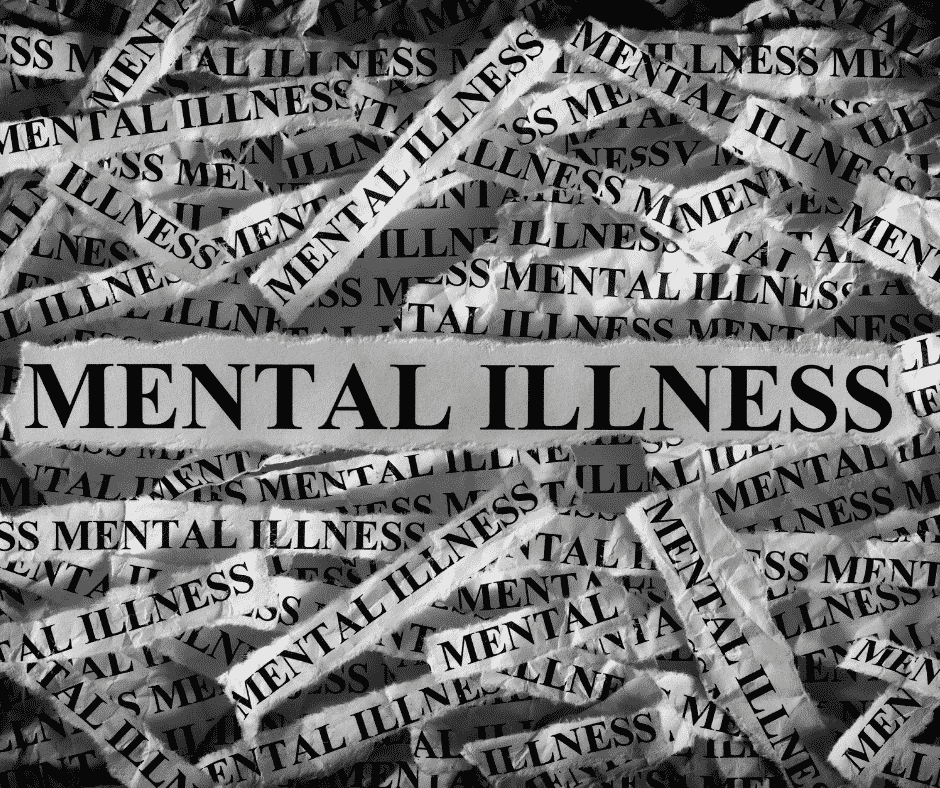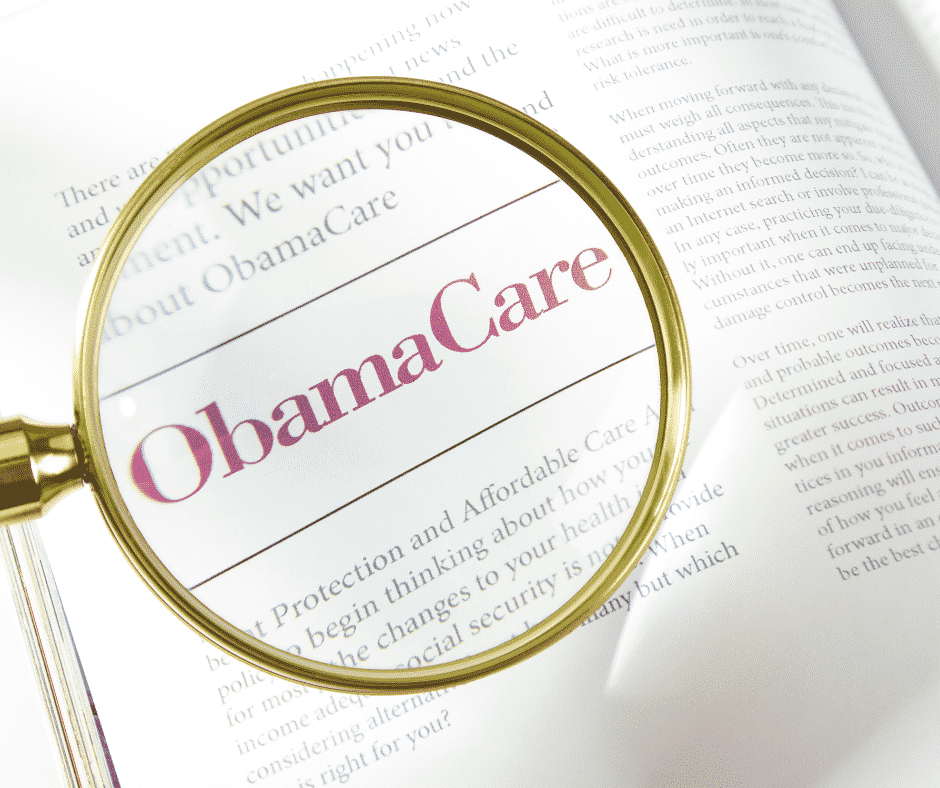MedicaidCategory:
 What is Medicaid?
What is Medicaid?
‘Medicare For All’ is a slogan that we have heard repeatedly in political campaigns and on the news. Medicare, and Medicaid to a lesser extent, are successful social programs that a majority of Americans embrace.
How does Medicaid work?
The biggest bones of contention have to do with the funding of Medicaid. The reality is–through the Medicaid program–we are virtually at “Medicare For All” because Medicaid is a massive program. Most people do not know how incredibly large Medicaid is. Once you understand how Medicaid works, you will see why it is so enormous.
How Big Is Medicaid?
Medicaid covers 1 in 5 Americans in various ways and at various stages. Medicare covers a huge population, but Medicaid significantly funds our medical institutions and professionals, though you hear constant complaints about Medicaid reimbursement.
Medicaid supports even a larger percentage of the American population than Medicare, which is only about 14.2 %. Medicaid provides 50% of the financing for Long Term Care Facilities, so how does Medicaid work?
Medicaid is a program designed for low-income individuals who lack the resources to provide their own health coverage. The Center for Medicare and Medicaid Services (CMS) administers Medicaid.
Medicaid Is A Working Relationship Between State and Federal Govt
Medicaid works as a partnership. The states administer the Medicaid program, and the federal government establishes broad standards. The states have the flexibility to decide which populations to cover. They determine the services covered and set up the health care delivery models. The state sets reimbursements for doctors and hospitals because the cost of living is different between New York, Nebraska, and New Mexico.
The state may conduct experiments in delivering the Medicaid program to figure out more effective uses for resources. The Section 1115 waivers allow for testing different approaches after the approval of the Secretary of HHS. The federal government will match up to 50% of what a state spends, even more for poorer states.
Medicaid Has Not Always Worked the Same Way
Medicaid used to be associated with Aid to Families with Dependent Children (AFDC) and federal Supplemental Security Income (SSI). In 1972 Congress expanded Medicaid coverage to parents with children, Medicare beneficiaries, the blind, and the disabled. Medicaid started paying the Medicare Part B premiums and co-insurance for some.
This is where the rubber meets the road with a number of my clients who are lower income. They may not qualify for “full Medicaid,” but they do qualify to have their Medicare Part B premium paid, which is a tremendous help.
Medicare Spend Down
Medicaid became more complex for those who were on the borderline of income. They could “buy in.” Disabled persons whose income was too high or were working could spend down their income to qualify for Medicaid.
In 1996 Congress broke the link between Medicaid eligibility and welfare. Some children’s families did not qualify for welfare, so they could not get Medicaid. People recognized the importance to cover children whose parents could not afford to provide health coverage. The Children’s Health Insurance Program (CHIP) 1997 was created to cover low-income children that did not qualify for Medicaid. The federal government added an enhanced match to encourage states to implement the plan. The recent development of the Medicaid program is to convert it into an income-based health insurance program for everyone below certain levels.
The Affordable Care Act (ACA) in 2010 expanded health coverage to those who had not been covered before–21-64 even if they are working. Their income simply needed to be below 138% of the federal poverty guideline to qualify for Medicaid health coverage. Nebraska, through a recent referendum, approved the expansion here. Governor Rickets implemented a plan HHS recently approved.
Medicaid Works To Cover 1 in 5 Americans
The enormity of Medicaid is mind-boggling. I suspect most citizens are completely unaware of the number of people covered. Medicaid provides health coverage and long-term care to over 75 million low-income Americans. The breakdown is that children account for more than four in ten (43%) of Medicaid enrollees, and the disabled elderly account for one in four. Medicaid covers nearly half of all births. Children with special health needs, such as autism, traumatic brain injury, serious mental illness, etc. make up 48% of the Medicaid rolls. Nonelderly adults with disabilities cover 45%. Six in ten nursing home residents are on Medicaid. Medicaid pays the Medicare Part B premium for 1 in 5 beneficiaries. The numbers are staggering.
(43%) of Medicaid enrollees, and the disabled elderly account for one in four. Medicaid covers nearly half of all births. Children with special health needs, such as autism, traumatic brain injury, serious mental illness, etc. make up 48% of the Medicaid rolls. Nonelderly adults with disabilities cover 45%. Six in ten nursing home residents are on Medicaid. Medicaid pays the Medicare Part B premium for 1 in 5 beneficiaries. The numbers are staggering.
 Medicaid Coverage Is Broad
Medicaid Coverage Is Broad
Medicaid covers more than you may think, and each state may add extras. Many states provide prescription drugs, physical therapy, eyeglasses, and dental. The ACA had its “essential health benefits” which influenced many of the states to add to their healthcare programs, especially on the mental health side. Substance abuse services are particularly geared toward the opioid crisis.
With the partnership of private insurance companies to administer Medicaid programs, there is more of an emphasis on preventive care and addressing issues before they become issues.
Medicaid provides a program known as Periodic Screening Diagnosis and Treatment (EPSDT) services. EPSDT is especially important for children with disabilities because private insurance is often inadequate to meet their needs. Parents cannot afford the costs of some diagnoses and treatments to enable the children to develop. This Medicaid-funded program serves as the stopgap.
Many do not realize how Medicaid works and its massive funding for nursing homes, home-based care, and community-based long-term care service and support. Home base care has expanded as a less expensive alternative to institutional care. Because of its efficiency, half of all long-term care funding goes to home-based programs.
Medicaid Works By Using Risk-Based Managed Care Programs
Over two-thirds of Medicaid beneficiaries are enrolled in a managed care plan. In Nebraska, there are three.
Over the years I have gotten to know the nurses and staff that work in these programs–both on Medicare as well as on the Medicaid side. I find it invaluable when my clients who are on Medicare and Medicaid have one of the dual plans with the same health insurer. The health provider staff, which is different and separate from Medicare and Medicaid, can coordinate care more readily. No one is dropping the ball, and redundancies are avoided.
The private insurance companies are on the hook for not only the care but for the outcomes. The state devises payments so that managed care plans are responsible for ensuring certain outcomes are attained. The insurance companies’ payments hinge on successful outcomes. They are at financial risk if they do not achieve pre-determined outcomes. More and more states are designing their programs around these types of risk-based managed care arrangements.
Community health centers are used to serve the low-income population rather than overloading the emergency rooms of public hospitals. “Value-based purchasing” of services is even used with mental health services. Many of the lower-income participants suffer from mental health issues. Through the coordinated dual plans, I have seen many of my clients receive far more and better help than before.
Access to Care
With Medicaid expansion, access to care improves overall community success. Research demonstrates Medicaid beneficiaries utilize care more readily than their uninsured counterparts who postpone treatment.
The result is less infant mortality among pregnant women. Teen mortality has declined. Classroom performance and graduation levels are higher with reduced behavior resulting in disability through lower rates of hospitalization and emergency room visits in later life. There are second-order fiscal effects like increased tax rolls due to higher earnings as adults.
The challenge with Medicaid is always access to providers, especially specialists. The psychiatric professionals are the most poorly represented. They, of course, are especially important in this community.
Medicaid reimbursements are 70% of private insurance. It is understandable why doctors and clinics are less than enthusiastic to take on Medicaid patients or more Medicaid patients, but the risk-based managed care plans are required to ensure access to just these types of doctors. Within their contracts and systems, they are guaranteeing this access. Fortunately, in recent surveys, doctor participation in Medicaid is not declining.
 Medicaid Has Wide Public Support
Medicaid Has Wide Public Support
Even though Medicaid makes up a large portion of each state’s budget as well as the federal expenditure, there is wide support for Medicaid. Public opinion polling shows that seven in ten Americans say they have had a connection with Medicaid including three in ten who were covered themselves by Medicaid at some point. All political affiliations have a favorable opinion of Medicaid and support the program.
In Nebraska’s recent referendum in October 2020, voters voiced their support for expanding Medicaid to the 21-64 age group. Understanding how Medicaid works enable its advocates to strengthen its many programs.
Since 2013 I have worked exclusively in Medicare insurance. Many people will ask me, however, ‘What is Medicaid?’ Some of my clients are on both Medicare and Medicaid. Those situations are more complex because you are dealing with two government agencies and a different setup in terms of insurance.

To help clients, I call Nebraska Medicaid or Access Nebraska frequently. During our initial meeting, I determine if prospective clients are eligible for Medicaid and LIS (Low Income Subsidy) through the EXTRA HELP Program. Medicaid and LIS are all based upon total income and assets.
Medicare & Medicaid do not require insurance agents to elp with Medicaid and LIS nor compensate agents for the work, but for those who qualify, the extra support is tremendous. I love to help clients get Medicaid and LIS when they qualify.
On top of figuring out how Medicare works, those who qualify for Medicaid, have an additional challenge as to how to apply for Medicaid. Each state has its own unique approach. But the big questions I hear are: what is Medicaid, where did it come from, what does it cover, how do I qualify, how do I apply for Medicaid, and why doesn’t it help me at my income level? Medicaid has a story, like Medicare.
What Is the Story of Medicaid?
The story of Medicaid began when Congress established Medicaid as part of Medicare in the Social Security Act of 1965 Title XIX. Individual states administer the federal program. The federal and state governments jointly fund Medicaid. The federal government sets the minimum standards for Medicaid, such as eligibility and coverage benefits, but the states implement and administer the plan. The state implements plans with a certain level of its own discretion.
For example, the state may expand eligibility to a wider group. It may also add additional benefits. Of course, the state will primarily bear the funding burden for those additional members and benefits. As it stands, the federal government covers fifty percent of the cost, except for states with lower per capita costs. The federal government may pay up to eighty percent. As it stands today, Medicaid covers 1 in 5 Americans. That’s a lot!

Medicaid & Long Term Care
The benefits covered include inpatient and outpatient acute care services, but what many may not be aware of is that the federal government is also involved in long-term care. As a matter of fact, the federal government is the largest provider of long-term care coverage through Medicaid.
Reform & Leverage
In 1986 constituents complained to their representatives in Congress that nursing home facilities were treating loved ones poorly and not giving them adequate care. Congress commissioned the Institute of Medicine (IOM) to study nursing home care in the nation. IOM discovered widespread abuse, neglect, and inadequate care. The study resulted in sweeping reforms that became law in the Nursing Home Reform Act in the Omnibus Budget Reconciliation Act of 1987.
Patient Bill of Rights
The legislation’s goal was to ensure nursing home residents received quality care to enable them to maintain their “highest practicable” physical, mental, and psychosocial well-being. Congress mandated essential health benefits. Part of the legislation created a “Bill of Rights” for residences. You may have seen that bill displayed in some long-term care facilities when you visited.
- The right to freedom from abuse, mistreatment, and neglect;
- The right to freedom from physical restraints;
- The right to privacy;
- The right to accommodation of medical, physical, psychological, and social needs;
- The right to be treated with dignity;
- The right to communicate freely;
- The right to participate in the review of one’s care plan, and to be fully informed in advance about any changes in care, treatment, or change of status in the facility;
- The right to voice grievances without discrimination or reprisal.

Because the federal government pays so much money to long-term care facilities, the industry quickly complied.
Monitoring Care For Medicaid Beneficiaries
There is over 1.6 million elderly and disabled receiving care in over 11,000 institutions. Nursing homes must be certified to receive Medicare and Medicaid reimbursements. The law requires states to perform inspections of facilities and surveys of residents annually and conduct investigations of complaints. They are the primary enforcer of Medicaid.

CMS Means Business
When violations are found, remedies and penalties may be imposed. Everything from the closure of the facility, monetary and criminal penalties, to the retraining of staff depending on the severity and widespread nature of the problem. You can check out the star rating for nursing homes at this link on Medicare.gov.
Medicaid Is Not Perfect
The major challenge for nursing homes is they may become dependent upon federal and state funding for their operations. For those institutions with a large Medicaid population, the reimbursement is 75—80 percent of what private insurance residents pay. Maintaining a facility at the level that Medicaid requires with inadequate funding may result in a bare-bones operation. It can also result in slipping out of compliance with the federal guidelines.
Deficit Reduction Act of 2005 (DRA) attempts to address the issues of inadequate funding. Nursing home residents who are on Medicaid can no longer be evicted without due process. Nursing home workers undergo background checks and standardized levels of training. Those convicted of abusing residents are placed on a national register of workers who have abused nursing home patients.
Creative Legislation
Another idea in DRA is a provision for states to partner with private long-term care insurance companies. The rules allow for the amount of LTC policy, such as $250,000, to be used to protect an equal amount of the person’s assets. Instead of spending down a person’s assets to nothing so he/she can then go on Medicaid, an equal amount of assets would be protected if a person purchased nursing home insurance.
Medicaid Planning Techniques
DRA legislation enacted prohibitions again “Medicaid planning” techniques. Some attorneys and financial planners were devising ways to move assets out of a person’s estate so that Medicaid and the state would not make claims against nursing care costs after the person passed. They would also transfer assets to family members to reduce the individual’s net worth and more quickly impoverish the person to make them a county ward.
Clawback provisions and penalties going back some time as far as five years to discourage persons from moving or hiding assets were enacted.
 Obamacare and Medicaid
Obamacare and Medicaid
The next big change to Medicaid came with the Patient Protection and Affordability Act of 2010 (ACA), a.k.a. Obamacare. The Affordable Care Act (ACA) required states to expand Medicaid to all citizens under 65 with incomes less than 138 percent of the federal poverty guideline. The federal government guaranteed funds for the first three years.
The U.S. Supreme Court ruled that provision of the ACA was unconstitutional because of its coercive nature to the states. The Medicaid expansion, however, remained intact but was left to the states to implement.
Nebraska implemented the ACA Medicaid provision in October of 2020 after state Initiative 427 was affirmed by the voters. Nebraska partners with private insurance companies to add managed care plans.
Not Enough
A major challenge for Medicaid is still reimbursement. Because the Medicaid reimbursement is so low, nursing homes, doctors, and other healthcare facilities are less enthusiastic about taking on more or even any Medicaid recipients. In 2012, CMS adjusted the payment amounts for primary care physicians, so they were paid and for Medicare beneficiaries as for Medicaid recipients. Doctor surveys, however, give the same consistent feedback that lower Medicaid reimbursements diminish access to medical providers.
Initiative 427
The Nebraska Medicaid program currently provides coverage to approximately 240,000 Nebraskans, with expenditures totaling $2,117,730.000 in 2018. Nebraska voters passed Initiative 427 in the November 2018 election that expanded Medicaid coverage to eligible able-bodied adults ages 19-64 who earn up to 138 percent of the federal poverty level. That is about $17,000 per year for a single adult. Governor Pete Ricketts’s administration is tasked with implementing the voter’s approved Medicaid expansion. The Nebraska Department of Health and Humana Services director, Matthew Van Patton, contacted CMS (Center for Medicare & Medicaid Services) to receive support for the state Medicaid program that enlarges Medicaid in Nebraska. This was part of provisions in the Patient Protection and Affordable Care Act (ACA), a.k.a. Obamacare. The name of the Nebraska Medicaid change is the Heritage Health Adult (HHA) expansion program.
Heritage Health Adult
The Heritage Health Adult is designed to improve population health. Many of the individuals in the 19-64 population had not obtained health coverage in the past. That age group of excluded from Medicaid. Their income was too high, or employers did not offer group health coverage. This has hurt those individuals as well as our community as a whole. We see that with the high numbers of lower-income and minorities contracting COVID. One of the program’s goals is to improve the health of the overall Nebraska community by providing health coverage to the uninsured.
 Basic & Prime Medicaid
Basic & Prime Medicaid
The program is a tiered system divided into two benefit tiers–Basic and Prime. The essential Medicaid services are like it sounds. It will consist of a robust package of services available to those low-income individuals who qualify. The Prime tier is designed for those who more actively engage in the program through wellness and personal responsibility engagement activities. Those who engage will qualify for prime coverage, such as dental, vision, and over-the-counter drugs. Providing health care in this manner is designed to help reduce per-capita costs.
Medically Frail
Many people eligible for expansion will have particular health needs that may be barriers to improving health. These people can be designated “Medically Frail” and will receive Prime benefits. Visit the Medically Frail web page for more information about the process.
Nebraska Medicaid Changes Show Up in Managed Care Plan
Nebraska’s Medicaid managed care program, Heritage Health, combines Nebraska Medicaid’s physical health, behavioral health, and pharmacy programs into a single comprehensive and coordinated program for the state’s Medicaid and Children’s Health Insurance Program (CHIP) enrollees. Heritage Health members enroll in one of three statewide health plans to receive their health care benefits. Nebraska Total Care. WellCare. United Healthcare Community Plan. The private companies manage the care of the Medicaid beneficiaries on behalf of the state of Nebraska’s Medicaid system. These are managed care plan forms.
Many times clients who are on Medicare will call about Medicaid. We have many clients who are on both Medicare and Medicaid. Some of those clients qualify for the special needs plans that coordinate the two and give some very generous additional benefits. However, the Nebraska Medicaid changes that Initiative 427 caused do not affect people on Medicare and Medicaid. The program expansion is just for those between the ages of 19-64 and not on Medicare. We still get phone calls, however, asking whether they qualify. If you wish to check and see if you may qualify for Medicaid or other programs that the Nebraska Department of Health and Human Services provides, please call 402-595-2850.








